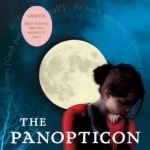Ian Anderson recommended Alabama Blues/Passionate Blues by JB Lenoir in Music (curated)
Lucy Buglass (45 KP) rated Rare Beasts (2019) in Movies
Oct 14, 2019
Rare Beasts follows Mandy, a career-driven single mother (Billie Piper) and her turbulent relationship with Pete (Leo Bill). Possibly the most frustrating thing about this film as it’s unclear why the two of them even ended up together at all.
It’s not uncommon for people to choose poorly when they’re dating, and end up in a relationship that doesn’t work, but Rare Beasts offers no reason for the two to even end up together in the first place. Mandy’s a single mother, she’s wild, she wears bold clothing, and Pete is a traditionalist who is, frankly, a misogynist with anger issues.
Interestingly, the film’s synopsis describes Pete as ‘charming’, and I’m unable to see that quality in him, nor is it ever shown from Mandy’s point of view. She never once looks at Pete lovingly, or seems charmed by him.
The lack of context or any indication as to what drove them to be together is a problem for me. Even if we saw one tiny nice moment between them it would make sense, but throughout the film they’re consistently awful to each other with no redeeming features.
Combined with a narrative that is all over the place and dialogue that feels very unnatural, it comes across as jarring most of the time. I have no issue with unconventional film styles, but I found it very hard to follow what was going on at various points.
It seems Rare Beasts is confused about what tone its actually going for, switching between whimsical musical style scenes (minus the music or singing) and gritty realism in a matter of seconds.
I appreciated the efforts to raise awareness of social issues such as domestic abuse, gender inequalities and the struggles of bringing up a child as a single parent, but these messages are squashed by a visual style that is rather overwhelming.
There is also a sub-plot involving Mandy’s parents (Kerry Fox and David Thewlis), who have separated but appear to have a complicated relationship. This is never fully explained either so it’s hard to connect with them, especially when Mandy’s mother falls ill.
This attempt to tug at our heartstrings falls flat, which is disappointing as it had the potential to bring some real, raw emotion to Rare Beasts. Sadly it’s as disjoined and confusing as Mandy and Pete’s relationship.
It’s clear those involved in the film gave it their all, and I can’t fault the quality of the actors even though some of the lines didn’t work and felt too far removed from natural conversation to be taken seriously. At least they tried.
Billie Piper has talent, there’s no doubt about it, but she hasn’t quite made it work in this very daring debut behind the camera. If Rare Beasts was attempting to be relatable and resonate with audiences, it failed to do that with me.

Ultimate General™: Gettysburg
Games
App
A Tactical Wargame that allows you to command thousands of soldiers as a Union or Confederate...

Fertility Friend FF App
Health & Fitness and Medical
App
Fertility Friend is the most trusted and accurate fertility tracker. This app is an advanced...

Honeywell Lyric
Lifestyle and Utilities
App
Comfort. Savings. Life. Perfectly in tune. Honeywell Lyric™ is a Wi-Fi connected platform that is...

Bipolar Test - Do I Have Bipolar Disorder
Health & Fitness and Education
App
If you have an uncontrollable mood, take a Bipolar Test and this mental health app will help you...

Simple Habit - Meditation
Health & Fitness and Lifestyle
App
***AS SEEN ON SHARK TANK*** Simple Habit is the best meditation app for busy people. Meditate for...

Caustic by Primitive Man
Album Watch
Denver’s PRIMITIVE MAN’s music matches its name: a savage, sparse mix of death metal,...
metal
Eilidh G Clark (177 KP) rated The Panopticon in Books
May 13, 2017
At the beginning of the novel, the fifteen-year old Anais is governed by the state. In contemporary British society, a child under the age of sixteen, regardless of her social situation is, by law, governed by an adult/s. Anais has lived her life in the care system with the exception of a short period in which she lived with an adopted mother. It is for this reason that she is able to see society from outside of the family unit. By creating the motherless child, Fagan presents Anais as the ‘other’ from both a societal perspective- ‘communities dinnae like no-ones,’ and from the viewpoint of the protagonist, ‘What they really want is me dead,’ (TP, p.23). Without a family, and through a lack of legitimate information regarding her birth mother, Anais believes that she was created in a lab:
I’M AN experiment. I always have been, It’s a given, a liberty, a fact. They watch me. Not just in school or social-work reviews, courts or police cells – they watch everywhere. […] They’re there when I stare too long or too clearly, without flinching. […] They watch me, I know it, and I can’t find anywhere any more – where they can’t see, (TP, Prologue).
Note that in the above quotation, the protagonist describes her assumed identity as a ‘liberty’. Liberty, in this case, means freedom from the oppressive nature of the family. Although Anais desires the nurturing aspect of the family, ‘I just want my mum,’ (Tp, p.269), her lack of family exposes her to the nature of contemporary society as a constant monitoring of civilians. In the above quotation, the repetition of ‘they’ suggests that she feels outside of the norm. The most important aspect of the above quote however, is that it is told from the protagonist’s thoughts. While Fagan gives Anais a certain amount of autonomy through both the first-person narrator, and the vernacular, the reliability of the narrator is increased by presenting the characters inner thoughts. While this limited autonomy is important, full autonomy is restricted by age. Bever suggests that ‘the capacity for individuals to become autonomous seems radically dependent on the contingent historical circumstances and societies into which they are born. Anais’ awareness of herself as the ‘other’ allows her an insight into the oppressive role of society, which is normally hindered in childhood due to the role of the family and it’s teaching of norms and values.
The sense of otherness can also be looked at in regard to Scotland and its role within the UK. The UK is a family of four countries under one state. Regardless of Scotland’s devolution, it has still to comply with a large amount of UK policies. Scotland has different values and goals to that of the UK making it ‘other’. With a different cultural identity to its neighbours, many Scottish citizens are seeking independence to protect its dwindling identity, whilst for others, independence is political.
Anais’ awareness of social control causes her a feeling of shrinking. This, according to her social workers is an identity problem:
Fifty odd moves, three different names, born in a nuthouse to a nobody that was never seen again. Identity problem? I dinnae have an identity problem – I dinnae have an identity, (TP, p.99).
Anais’ reaction in the above statement describes her lack of knowledge of her ancestry. I would argue that her identity is forced upon her from the fifty-one times that she has moved home, the care system, the solitary time in which she was adopted, the relationships she has had - both female and male, her friends but more importantly, from the unreliable account of her birth from the monk in the metal institution. The lack of family does not alter the fact that she is alive, and that all the fragments of her past make up an identity. For Anais, ‘Families are overrated […] ‘I umnay fooled. Not by families,’(TP, p.63-64). Like Anais, Scotland’s identity is ambiguous. Independence will allow Scotland political autonomy, however, within a global economy, Scotland still has limited autonomy. As culturally ‘other’ however, Scotland has already achieved autonomy with or without a state through its language, its people and its traditions.
Fagan demonstrates the difficulty of total autonomy though Anais and the birthday game, a game in which she creates her own identity. When she turns sixteen years of age, Anais is free from societal care and flees from her imprisonment, ‘I am Frances Jones from Paris. I am not a face on a missing-person poster, I am not a number or a statistic in a file. I have no-one watching me, […] I−begin today,’ (TP, p.323-324). ‘I’ suggests singularity and is still opposite to ‘them’ or ‘we’. Autonomy is therefore, ambiguous; Anais is still living within the same system under a false identity, she is therefore, segregated from everyone that she knows. Moreover, by changing Anais’ name to a name that ‘means freedom.’ (TP, p.323), Fagan is pointing out the difference between freedom and autonomy. Freedom is an emotive word, and there are two concepts of freedom – freedom from, which in Anais’ situation means freedom from the system of observation. Freedom to, however, is more problematic as Anais can never be free from the neoliberal system of rules and law – as Scotland would see in the case of independence. I would therefore conclude that Anais/Scotland has always has limited autonomy through cultural identity and history. I believe autonomy can only reside within the system through cultural and individual imagination and not out with it.
What does this mean for Scotland? If Scotland is part of the global community, can it become an autonomous nation? Is there a solution or should Anais/Scotland accept that cultural autonomy is imagined or self-contained. Can a collective identity and imagination change the political system? Finally, can culture survive without independence?
Bibliography
Crupp, Tyler, ‘Autonomy and Contemporary Political Theory’, in Encyclopaedia of Political Theory, ed. Mark Bevor (London: Sage Publications, 2010)
Fagan, Jenni, The Panopticon (London: Windmill Books, 2013), p.6.
Windmill Books. (2013). Granta Best Young British Novelist Jenni Fagan, . accessed 22 November 2015. Published on Apr 16, 2013
Hazel (1853 KP) rated The Mindfulness Playbook in Books
Dec 23, 2017
Discover how to become healthier, happier, and more resilient with The Mindfulness Playbook by psychology expert Dr Barbara Mariposa. Written with the general public in mind, Mariposa tackles thoughts, feelings and situations that crop up in everyday life and provides effective coping strategies that can be employed anytime, anywhere. Full of inspiring solutions and practical skills, this book advises and supports as readers bring calm and happiness back into their lives. “By engaging with the content of this book, you will learn unique tools and skills that can bring you greater energy, freedom and clarity.”
Mindfulness is about living in the moment rather than dwelling on the past or worrying about the future. By regularly employing mindfulness, life, in theory, should become much simpler. Unfortunately, many people suffer from anxiety and depression; therefore, mindfulness can be a difficult concept to tackle. Mariposa breaks down the book into eight units and explains simple, proven techniques that, with daily practice, anyone can make a habit of using.
Dr Barbara Mariposa developed the Mind Mood Mastery programme and uses many of her ideas from this as the basis of her book. Each unit is broken down into manageable chunks that are easy to interpret and are relevant to the 21st century. Each unit contains a motto, which expresses the theme of the information provided and a task for people to do in their own time. There are also pages containing sections to write answers to questions Mariposa poses throughout the text.
Many of the tools Mariposa introduces can be shortened to acronyms, making them easy for people to remember in moments of anxiety or stress. One example is “BELL- Breathe. Expand. Listen. Look.” By remembering the letters of this power tool, it can be brought to mind in a difficult situation. It reminds the person to take a deep breath, notice what is going on around them, listen to what they can hear, and focus on something they can see. This helps to stop thoughts from spiralling into the past or future and causing lots of anxiety.
The problem with the term “mindfulness” is it has become an overused term and often replaces the word “relaxing”, for example, on colouring books. Dr Mariposa keeps to the scientific definition of the word (a mental state achieved by focusing one's awareness on the present moment, while calmly acknowledging and accepting one's feelings, thoughts, and bodily sensations, used as a therapeutic technique) and is sympathetic to the reader, acknowledging that life can be hard and mindfulness can be difficult to maintain.
Within each unit is a section dubbed “The Science Bit”, which, it goes without saying, contains scientific information. Mariposa explains in layman’s terms how the brain works and what causes anxiety and depression. She also demonstrates with diagrams how to rewire the brain and alter thought processes. It is interesting to learn that the brain physically changes shape as mindfulness techniques are practised.
For those who want a simple, easy to follow book about mindfulness, The Mindfulness Playbook is definitely the one to purchase. The balance between science and everyday life is on point, and the language style is appropriate for all readers. Quotes from famous names break up the text into manageable sections and it is easy to dip in and out of the book as needed. Dr Barbara Mariposa has produced a superb self-help guide and, with hope, it will help everyone who reads it.



